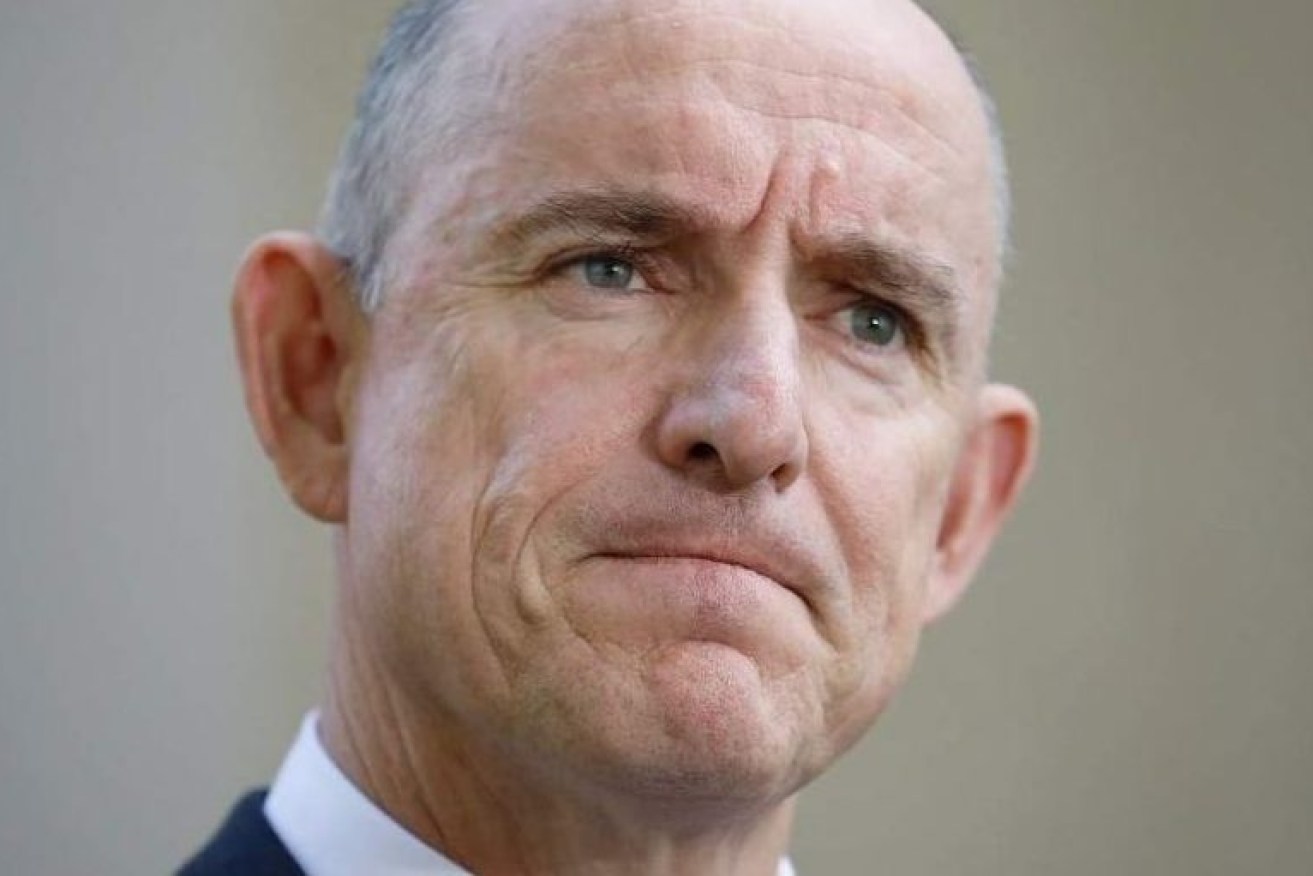The science of telling lies, or just the truth you have when you can’t handle the truth
Donald Trump introduced us to the concept of “alternative facts” – but it seems Australian governments of whatever hue are also coming up with their own particular versions of the truth, writes David Fagan


Stuart Robert. (ABC News: Matt Roberts)
Lies, by whatever name, are part of the political toolkit – and we might all be to blame for the misinformation, exaggeration and abominations of truth that come from our politicans’ mouths.
In a moment of truth, former federal minister and Queenslander Stuart Robert explained the science of lying at the robodebt royal commission last week.
By the Gold Coast MP’s standard, it was okay to misrepresent the success of the most immoral and failed government program this century because his job was to champion government policy, not to concede its weaknesses.
We shouldn’t be surprised but, in taking the commissioner through what passes as his thought processes, Robert let a few other cats out of the bag.
Among them (and this won’t surprise anyone who’s had combative dealings with the Australian Tax Office) is that he had mastered the art of manipulating numbers in his favour from his experience as minister responsible for the ATO.
“…Having come from Tax, Tax says black is white all the time. It’s extraordinary what the Tax Office does on a commission of declaration. So I watched government do some extraordinary things,” Robert recalled of his inglorious and, presumably completed, ministerial career.
The problem for Stuart Robert is that his evidence followed that of his departmental head who told the commission how she had laid out the flaws for her minister who responded that legal advice is just advice and the government would double down on robodebt.
Robert disputes her version, leaving Commissioner Holmes to decide who is telling the truth – the former departmental secretary or the minister who relies on precedents of black being declared white to explain his behaviour.
She may find he was lying and almost certainly will find that he’s stretched the truth or some other variation. This will, as it should, form the political epitaph of the Member for Fadden.
The “l” word is being tossed around a lot at the moment. Anthony Albanese declared the government would not touch superannuation before an election characterised by the then Opposition Leader’s determination not to attach any targets to his ambition.
In government, he and his loosely disciplined Cabinet have been busy hanging targets all over themselves, leaving an Opposition plenty of choice in where to go hunting. This column two weeks ago set out the catalogue of reviews underway that create a happy hunting ground all the way to the next election.
Albo’s in da house: If it moves, the prime minister is determined to review it
Superannuation wasn’t one of them because it was clearly left out of the sights of a government that believed it had been denied a term in office because of the fear of messing with retirement incomes generated in the 2019 campaign.
My view is that taxation of income from high superannuation balances was always going to be in scope, as it should be, given the generosity of concessions for multi-multi millionaires, compared with the punitive impact on pension entitlements of retirees such as teachers and nurses with much lower balances. They are effectively taxed 50 cents in the dollar.
But the government, if it was to break this pledge, needed a process other than the hamfisted and unexpected kite flying of Treasurer Jim Chalmers. Perhaps the upcoming intergenerational report and a properly commissioned review with some detail attached might have been a good start rather than a random thought bubble.
The ensuing debate has turned attention to what constitutes a lie. The government’s response is that the proposed changes have minimal current effects. That’s enough to label it a lie, says the Opposition and its supporters.
But how else do we advance and secure reform in this country if we don’t change our mind when presented with new facts without immediately retreating to a debate about lies.
Stuart Robert and his shabby coterie should have been able to change their position on robodebt once they realised it was both a debacle and probably illegal – and not have to resort to trying to explain, as the minister says, by declaring black is white.
And Jim Chalmers should be able to build a case that very wealthy people need to pay more tax without tripping over the tax sanctity of the family home and terrifying others planning their future that the government is going to come after their savings.
Truth may be a necessary casualty of politics but it’s best served with a decent dose of explanation, an ingredient the successful reformers of Australian society (and I’m thinking Hawke, Keating and Howard) have had in their cookbook.












